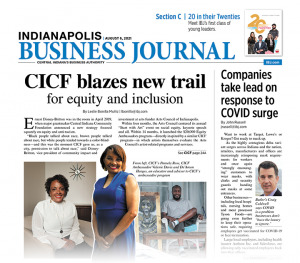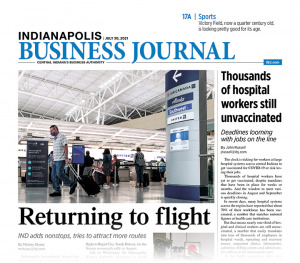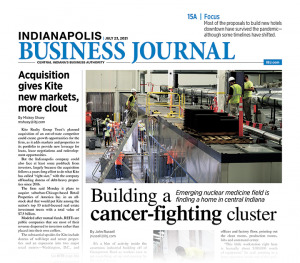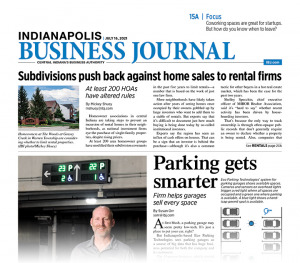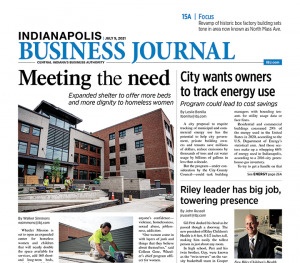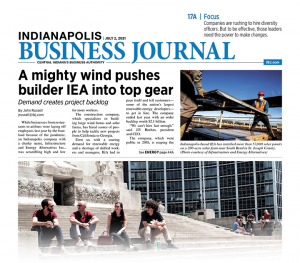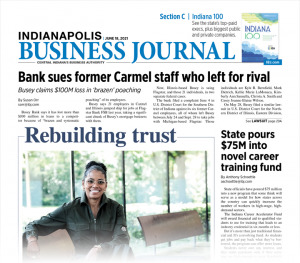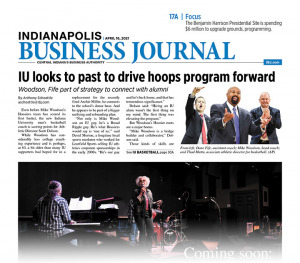
AUG. 13-19, 2021
If you need to take an ambulance to an emergency room, prepare yourself for a long trip. Hospitals are suffering severe nursing shortages as demand for services increases, which is leading them to divert ambulances to other hospitals in central Indiana at an unprecedented rate, IBJ’s John Russell reports. Also in this week’s issue, Leslie Bonilla Muñiz explains how IndyGo has found an intermediate step between its current fleet and an all-electric transit system, ordering $26 million in hybrid buses. And Mickey Shuey takes stock of Roger Penske’s progress so far in upgrading the Indianapolis Motor Speedway and reinvigorating the IndyCar series.

